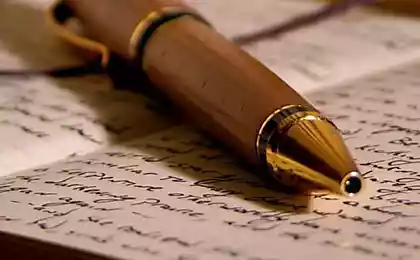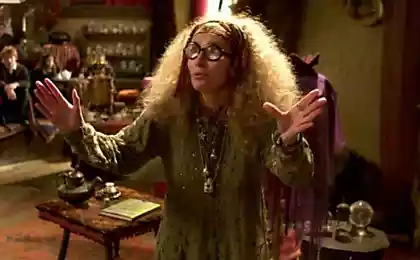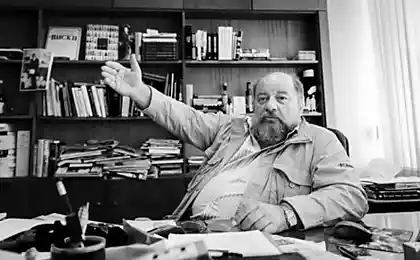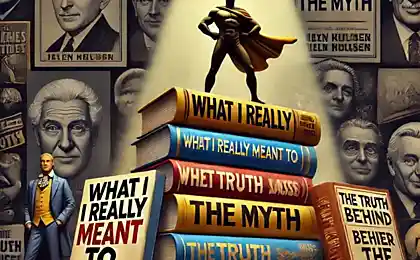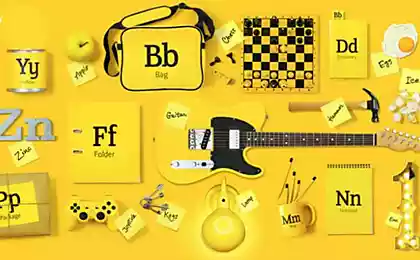229
Are there really people with innate literacy or is this not the case at all?
Many are convinced that literacy This is the result of his many years of work. After all, only an exemplary student who memorizes all the rules and exceptions can know exactly what and how to write in each case.

However, it also happens that a person cannot be called a diligent student, and he did not study at a prestigious university, but his literacy is at the top. It seems that this gentleman was already born with a dictionary in his head. But that's impossible. What is it, then?
Indeed, learning the language is given to everyone in different ways. Someone remembers rules, test words, accents and phonetic transcriptions for years. But sometimes they make obvious mistakes. The other just feels which option is better.

How does the second category of people manage to remain literate without knowing any rules? What is called “innate literacy” cannot actually be innate. Because a person needs to know exactly the rules of spelling and punctuation of a particular language, and with modern amendments, with new-fangled words.

One of the first explanations given here by philologists speaks of excellent visual memory. A person simply remembers words and verbal constructions like pictures. And when he sees that word again with an error, he notices a discrepancy, something clicks in his head. It is similar to how messengers in red emphasize places where with a high degree of probability the user made a mistake.
351946
It is known that language information in most people (right-handed) is processed by the left hemisphere. But common words and verbal constructions a person is able to recognize even without using the left hemisphere. Memory really comes to the rescue here.
When a person with “innate literacy” needs to check the correct spelling of a word, he writes all the options on a piece of paper. And then just crosses out all the wrong ones. It looks pretty funny.

Moreover, philologists explain that it is extremely unpleasant for such people to read the text with errors, since every inaccuracy causes a negative emotion. Writing the text is not a problem for them. As long as it is written easily and calmly, everything is right. As soon as you make a mistake, the brain will immediately give an unpleasant signal.
How can we develop such literacy without knowing the rules and exceptions? Read a lot. Read high-quality literature, not social media posts. Reading texts with errors, a person makes his literacy worse.

However, excellent reading must be approached correctly. If a person quickly absorbs the text, guessing the words by their approximate contour, then there will be no result. And if you read slowly and thoughtfully, if you enjoy every line written, then every word will definitely leave a mark on your memory.

However, it also happens that a person cannot be called a diligent student, and he did not study at a prestigious university, but his literacy is at the top. It seems that this gentleman was already born with a dictionary in his head. But that's impossible. What is it, then?
Indeed, learning the language is given to everyone in different ways. Someone remembers rules, test words, accents and phonetic transcriptions for years. But sometimes they make obvious mistakes. The other just feels which option is better.

How does the second category of people manage to remain literate without knowing any rules? What is called “innate literacy” cannot actually be innate. Because a person needs to know exactly the rules of spelling and punctuation of a particular language, and with modern amendments, with new-fangled words.

One of the first explanations given here by philologists speaks of excellent visual memory. A person simply remembers words and verbal constructions like pictures. And when he sees that word again with an error, he notices a discrepancy, something clicks in his head. It is similar to how messengers in red emphasize places where with a high degree of probability the user made a mistake.
351946
It is known that language information in most people (right-handed) is processed by the left hemisphere. But common words and verbal constructions a person is able to recognize even without using the left hemisphere. Memory really comes to the rescue here.
When a person with “innate literacy” needs to check the correct spelling of a word, he writes all the options on a piece of paper. And then just crosses out all the wrong ones. It looks pretty funny.

Moreover, philologists explain that it is extremely unpleasant for such people to read the text with errors, since every inaccuracy causes a negative emotion. Writing the text is not a problem for them. As long as it is written easily and calmly, everything is right. As soon as you make a mistake, the brain will immediately give an unpleasant signal.
How can we develop such literacy without knowing the rules and exceptions? Read a lot. Read high-quality literature, not social media posts. Reading texts with errors, a person makes his literacy worse.

However, excellent reading must be approached correctly. If a person quickly absorbs the text, guessing the words by their approximate contour, then there will be no result. And if you read slowly and thoughtfully, if you enjoy every line written, then every word will definitely leave a mark on your memory.
Why are online social studies courses important for preparing for the exam?
After watering her favorite lilies of the world, my mom does one thing, new buds are hard to count.

